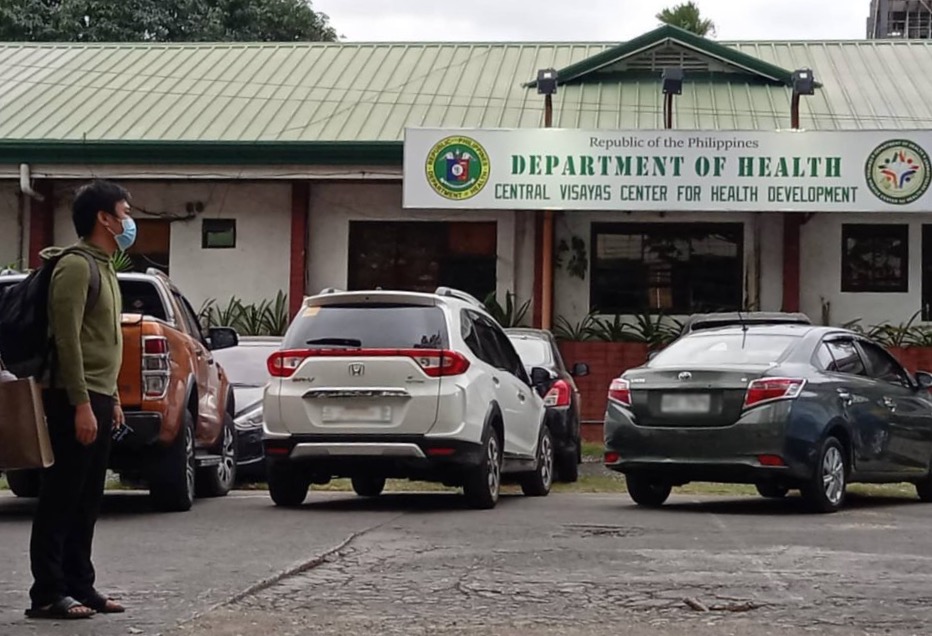
| CDN DIGITAL File photo
CEBU CITY, Philippines – The Department of Health in Central Visayas (DOH – 7) is not recommending the use of personal air purifiers as “protection” against the coronavirus disease 2019 (COVID-19).
This is just some of the reminders in relation to the coronavirus pandemic the regional health office on Monday, August 17, 2020, issued to the public.
Dr. Mary Jean Loreche, spokesperson of DOH-7, said the country’s health department has not issued any recommendation officially endorsing air purifiers, including personal ones, as effective in preventing COVID-19 infection.
“DOH cannot comment (on the effectiveness) since there is no recommendation yet endorsing this one…It (still) requires study that is scientifically proven and research-backed,” said Loreche.
Loreche instead urged the public to follow proven and effective preventive measures officially endorsed by health officials.
“(We know) there are a lot using air purifiers believing it would clean the air should there be a virus. But at the end of the day, still, our face masks, face shields, frequent handwashing, and social distancing will really help us prevent COVID-19,” she added.
Since the coronavirus pandemic hit Cebu, several netizens and groups have been selling personal air purifiers, which are usually worn around the neck, online.
Lately, the Capitol, through Executive Order (EO) No. 20-A, has also required guests to wear air purifiers, on top of having face masks, when visiting tourist destinations.
“All guests are required to wear personal air purifiers during the duration of the activity. Guests without personal air purifiers may rent disinfected and sterilized air purifiers at the place of the destination activity,” read portions of the EO released last July.
Sought for her comments, CDN Digital reached out to Governor Gwendolyn Garcia but to no avail as of this posting.
Cebu province has remained under a state of modified general community quarantine (MGCQ) that allowed the resumption of tourism activities.
Doctors ‘endorsing hydroxychloroquine’
DOH- 7 also warned doctors reportedly endorsing hydroxychloroquine, a drug used to treat malaria, to COVID-19 patients.
Loreche said while hydroxychloroquine is proven effective to help the recovery of patients confirmed to have malaria, a mosquito-borne disease, the same cannot be said for those with SARS-CoV-2, the virus that caused COVID-19.
“DOH does not recommend hydroxychloroquine except if you’re treating malaria,” said Loreche.
“Since COVID-19 is known to have different pathogenesis, or the manner of development of a disease, from malaria, this (hydroxychloroquine) is not recommended as a treatment of choice for COVID-19,” she added.
The DOH-7 official said physicians who continue to administer this drug to COVID-19 patients should be ready to face responsibilities in case complications arise.
“If the doctor will still prescribe it, and take his own risk to advise and talk to the patient, then he or she will bear the full responsibility should there be complications arising from it,” said Loreche.
Loreche made the statement following reports that several doctors in Central Visayas have publicly endorsed hydroxychloroquine as a treatment for COVID-19.
Hydroxychloroquine, a less toxic derivative of chloroquine, was approved for treating lupus and rheumatoid arthritis and for preventing and treating malaria.
It was initially included in the clinical trial for COVID-19 treatment after some laboratories reported that it curbed the ability of the virus to enter the cells.
The “temporary pause” in the drug trial was prompted by the publication of a paper last week in The Lancet, a medical journal followed by most medical specialists, which showed that people taking hydroxychloroquine were at higher risk of incurring heart problems, or even of death.
READ MORE: PH stops hydroxychloroquine treatment in COVID-19 clinical trials after WHO advice